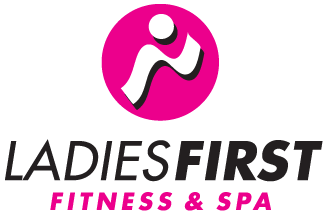Key Takeaways
- 73% of people quit fitness routines - Boring, ineffective exercises kill motivation
- Time-wasting habits sabotage results - Poor exercise choices limit muscle growth and strength gains
- Smart routine optimization saves hours - Focus on compound movements over isolation exercises
- Proper warm-ups prevent injuries - Skipping or doing ineffective warm-ups increases injury risk
- Quality beats quantity every time - Strategic exercise selection delivers better results faster
- Sleep and recovery matter most - Poor rest habits undermine all your hard work
- Simple fixes transform workouts - Small changes create dramatic improvements in efficiency
75% of people fail at fitness programs due to time constraints. Most workouts include exercises that waste your time and energy.
This guide helps you cut the fat from your routine.
Here's what actually works.
Which Exercises Are Actually Wasting Your Time?
Stop doing exercises that don't move the needle.
Excessive light-weight, high-rep training limits muscle growth. Your muscles need progressive overload to change.
These exercises waste time:
- Endless crunches for abs
- 30-minute treadmill walks
- Bicep curls with 5-pound weights
- Side bends with light dumbbells
- Inner thigh machines
Focus on these instead:
- Squats and deadlifts
- Push-ups and pull-ups
- Planks and mountain climbers
- Short, intense cardio intervals
- Compound movements that work multiple muscles
The 80% of gym members who quit within 5 months usually follow programs packed with ineffective exercises.
Smart exercise selection keeps you motivated long-term.
How Do You Identify Time-Wasting Workout Habits?
Look for these red flags in your current routine.
Signs you're wasting time:
- Workouts take over 90 minutes
- You do the same routine every day
- You never feel challenged
- Results stopped months ago
- You skip workouts because they're boring
73% of people abandon routines within six months due to boredom.
Quick fixes that work:
- Cut workout time to 45-60 minutes max
- Change routines every 4-6 weeks
- Track weights and reps to ensure progress
- Add variety with different exercise styles
- Focus on movements that challenge your whole body
Most people do too much of what doesn't work. Less can be more when you choose the right exercises.
Check out our efficient workout programs designed for busy women.
What Makes a Workout Routine Actually Effective?
Effective routines prioritize compound movements and proper progression.
The efficiency formula:
- Compound exercises first - Squats, deadlifts, rows work multiple muscles
- Progressive overload - Add weight, reps, or difficulty each week
- Proper rest periods - 48-72 hours between training same muscle groups
- Quality warm-ups - Skipping warm-ups increases injury risk
Time-saving workout structure:
- 5-10 minutes dynamic warm-up
- 20-30 minutes strength training
- 10-15 minutes cardio or conditioning
- 5-10 minutes cool-down and stretching
Focus on exercises that give you the biggest bang for your buck.
A well-designed 45-minute workout beats a scattered 90-minute session every time.
Our personal training services help you build efficient, effective routines.
How Can You Fix Your Recovery and Sleep Habits?
Poor sleep habits hurt workout performance and muscle recovery.
Sleep impacts everything:
- Muscle repair and growth
- Energy levels during workouts
- Motivation to exercise
- Injury recovery time
- Overall fitness progress
Simple sleep improvements:
- Aim for 7-9 hours nightly
- Keep bedroom cool and dark
- Avoid screens 1 hour before bed
- Stick to consistent sleep schedule
- Limit caffeine after 2 PM
Recovery habits that work:
- Take 1-2 complete rest days weekly
- Do light activity on rest days (walking, stretching)
- Stay hydrated throughout the day
- Eat protein within 2 hours post-workout
- Listen to your body's fatigue signals
Recovery is when your body actually gets stronger. Don't skip it.
Learn more about strength training basics that support proper recovery.
Why Do Most People Stick With Ineffective Routines?
Fear of change keeps people doing what doesn't work.
Common mental barriers:
- "This routine worked before"
- "I don't know what else to do"
- "I'm afraid of getting bulky"
- "I need to burn calories, not lift weights"
- "I don't have time to learn new exercises"
73% of patients don't complete prescribed exercise programs.
Breaking through resistance:
- Start with one small change per week
- Focus on form before adding weight
- Track progress to see real results
- Find accountability through classes or partners
- Educate yourself about effective training methods
Mindset shifts that help:
- Results matter more than time spent
- Strength training won't make you bulky
- Consistency beats perfection
- Quality movement patterns prevent injury
- Your routine should evolve as you improve
Change feels uncomfortable at first. Stick with proven methods for 4-6 weeks to see real results.
Join our group fitness classes for accountability and proper instruction.
What's the Financial Cost of Ineffective Workouts?
Poor exercise habits cost more than you think.
The US spends $117 billion annually on health costs related to inadequate physical activity.
Hidden costs of ineffective routines:
- Wasted gym membership fees
- Injury-related medical bills
- Lost productivity from poor health
- Supplements that don't work
- Equipment you never use
Smart investments that pay off:
- Quality gym with proper equipment
- Professional instruction or personal training
- Comfortable, supportive workout gear
- Nutritional guidance
- Regular health check-ups
Calculate your current waste:
- Monthly gym fee ÷ actual visits = cost per workout
- Money spent on unused equipment
- Time value of ineffective exercise hours
- Healthcare costs from preventable issues
Investing in effective training methods saves money long-term.
Our membership options provide maximum value for your fitness investment.
What This Means for You
Stop wasting time on exercises that don't deliver results.
Your action plan:
- Audit your current routine - List exercises and evaluate effectiveness
- Cut time-wasting movements - Focus on compound exercises
- Improve your warm-up - Spend 5-10 minutes on dynamic preparation
- Track your progress - Monitor weights, reps, and how you feel
- Prioritize recovery - Get adequate sleep and rest days
Start with one change this week. Small improvements compound over time.
Ready to transform your routine? Get our free 3-day pass and experience efficient, effective workouts.
Frequently Asked Questions:
How long should an effective workout take?
45-60 minutes is plenty for most people. Quality beats quantity every time.
What if I enjoy exercises that aren't "optimal"?
Include some for enjoyment, but make sure 80% of your routine focuses on effective movements.
How often should I change my workout routine?
Every 4-6 weeks to prevent plateaus and maintain motivation.
Can I get results working out just 3 days per week?
Yes, if you focus on compound movements and progressive overload.
Our Recent Posts








